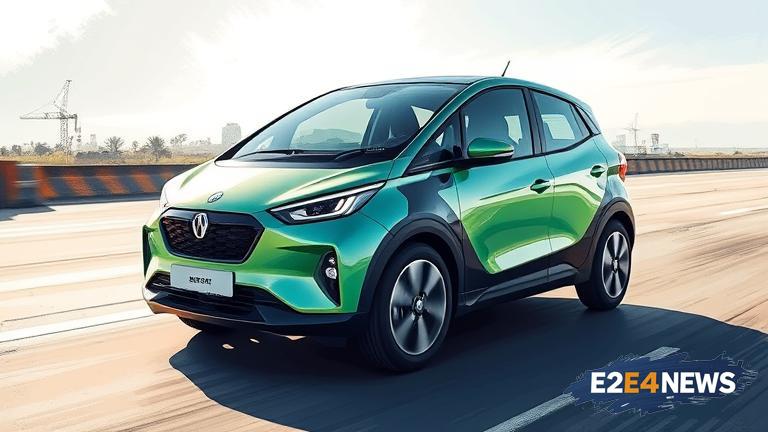The Indian government has announced a comprehensive plan to promote the adoption of electric vehicles (EVs) in the country. The plan includes a range of incentives and initiatives aimed at encouraging the use of EVs, reducing greenhouse gas emissions, and improving air quality. According to reports, the government plans to offer subsidies to EV manufacturers, as well as to consumers who purchase EVs. The subsidies are expected to be in the form of tax exemptions and discounts on the purchase price of EVs. Additionally, the government plans to invest in the development of EV charging infrastructure, including the installation of charging stations along highways and in urban areas. The plan also includes measures to promote the use of EVs in public transportation, such as buses and taxis. The government has set a target of having at least 30% of all new vehicle sales be electric by 2030. To achieve this goal, the government plans to work with state governments and private companies to develop EV-friendly policies and infrastructure. The plan also includes measures to encourage the development of EV manufacturing in India, including the establishment of EV manufacturing hubs and the provision of incentives to EV manufacturers. The government has also announced plans to develop a national EV policy, which will outline the country’s vision and strategy for promoting the adoption of EVs. The policy is expected to include measures to promote the use of EVs in all sectors, including personal transportation, public transportation, and goods transportation. The government has also announced plans to develop a network of EV charging corridors along major highways, which will enable EV owners to charge their vehicles on the go. The plan also includes measures to promote the use of EVs in rural areas, where access to charging infrastructure is often limited. The government has announced plans to develop a range of EV models, including cars, buses, and two-wheelers, which will be designed to meet the needs of Indian consumers. The plan also includes measures to promote the development of EV batteries and other components in India, which will help to reduce the country’s dependence on imported EV technology. The government has also announced plans to develop a range of EV-related skills and training programs, which will help to build a workforce with the skills and knowledge needed to support the growth of the EV industry. The plan also includes measures to promote the use of EVs in the commercial sector, including the development of EVs for goods transportation and logistics. The government has announced plans to work with private companies to develop EV-based solutions for last-mile delivery and other logistics applications. The plan also includes measures to promote the development of EV-friendly cities, which will include the development of EV charging infrastructure and the promotion of EV-friendly transportation policies. The government has announced plans to develop a range of EV-related research and development programs, which will help to drive innovation and growth in the EV sector. The plan also includes measures to promote the use of EVs in the agricultural sector, including the development of EVs for farm use and the promotion of EV-friendly agricultural practices. Overall, the Indian government’s plan to promote the adoption of EVs is a comprehensive and ambitious initiative that has the potential to transform the country’s transportation sector and reduce its dependence on fossil fuels.
